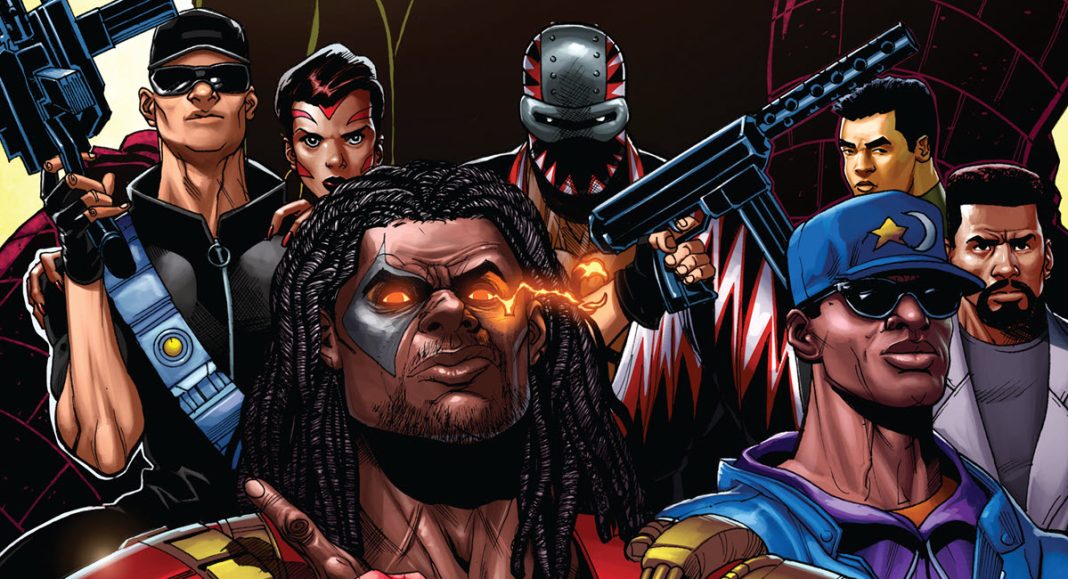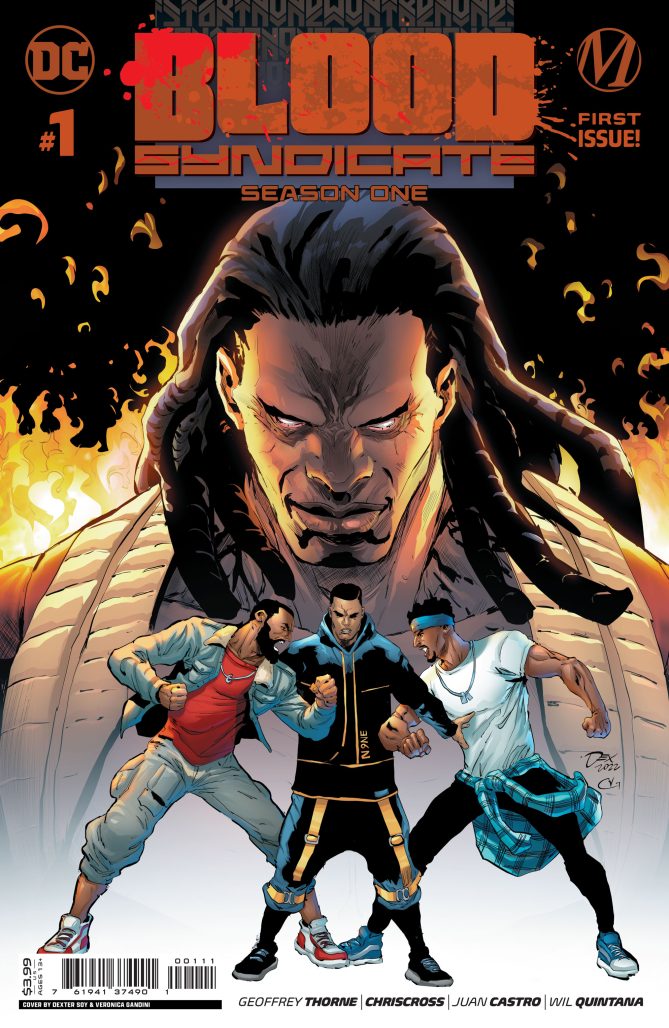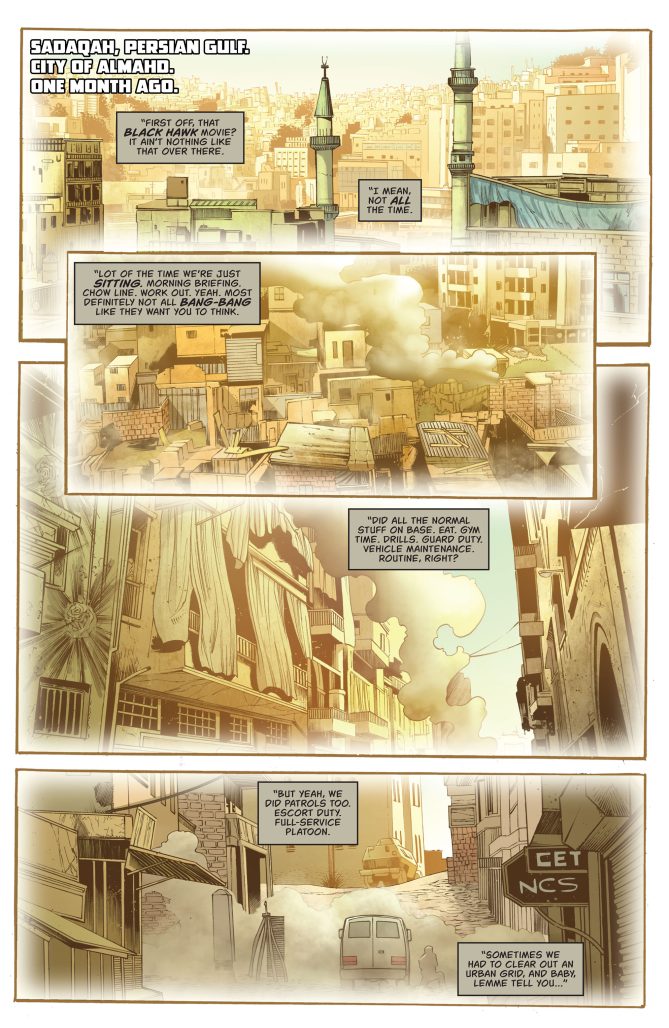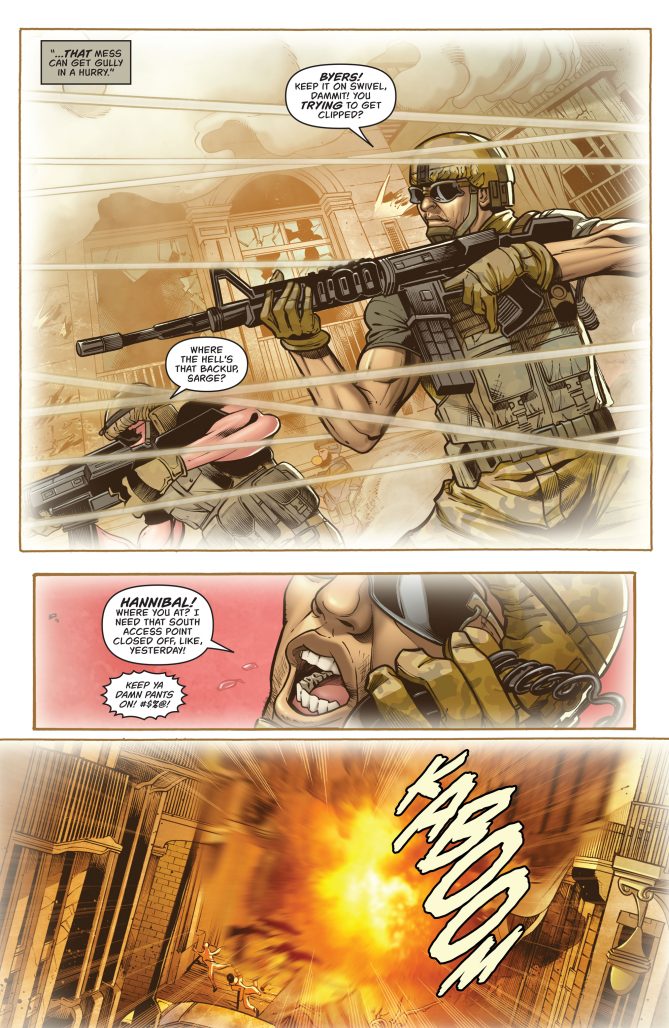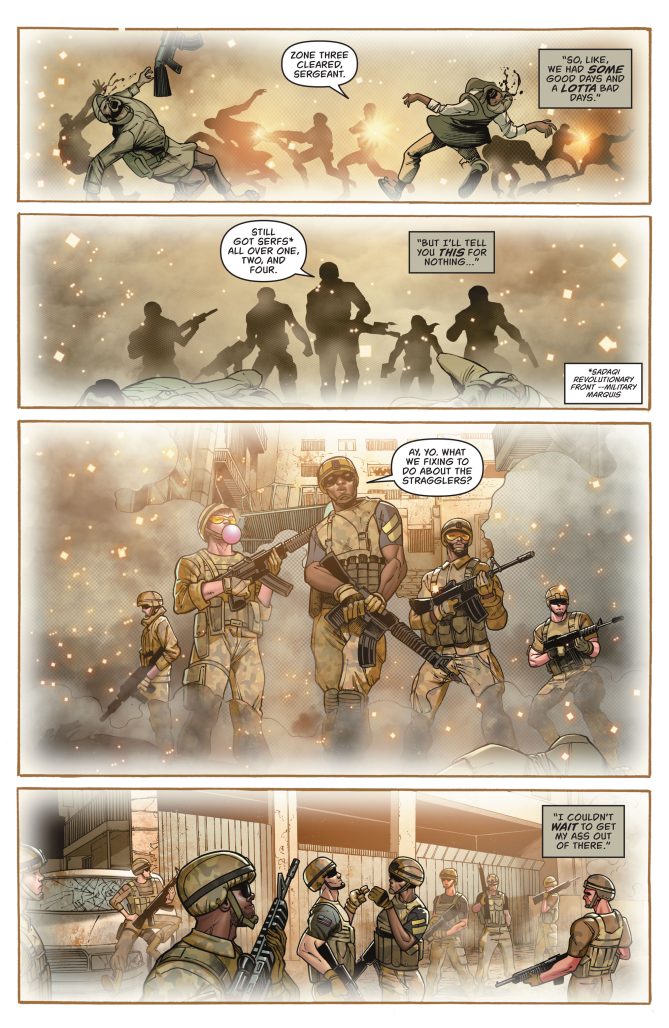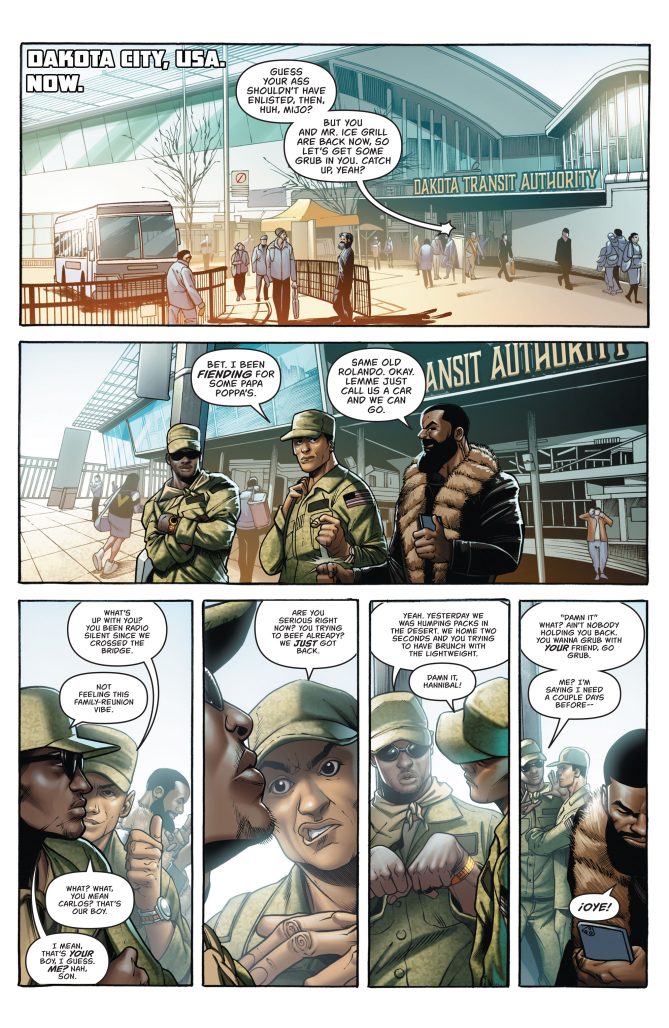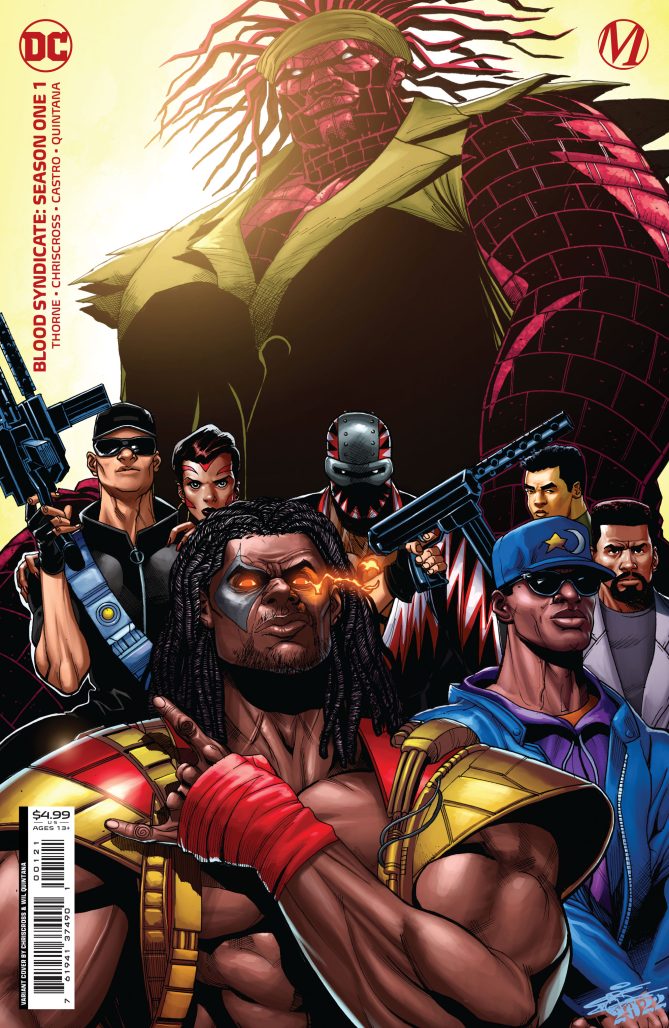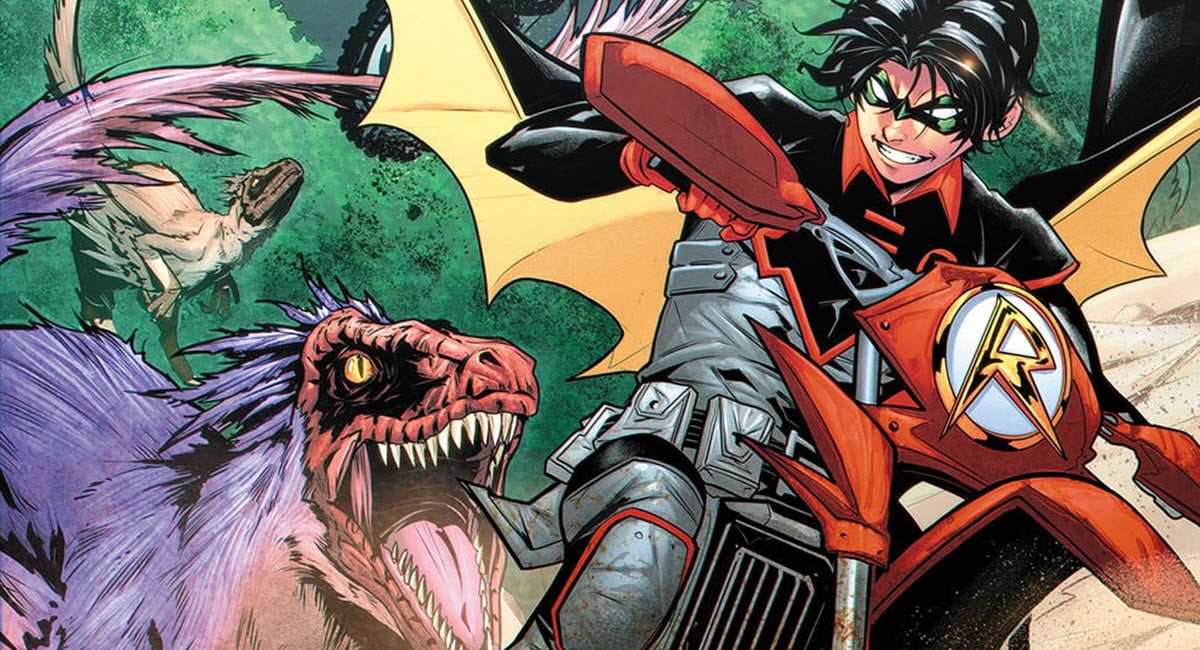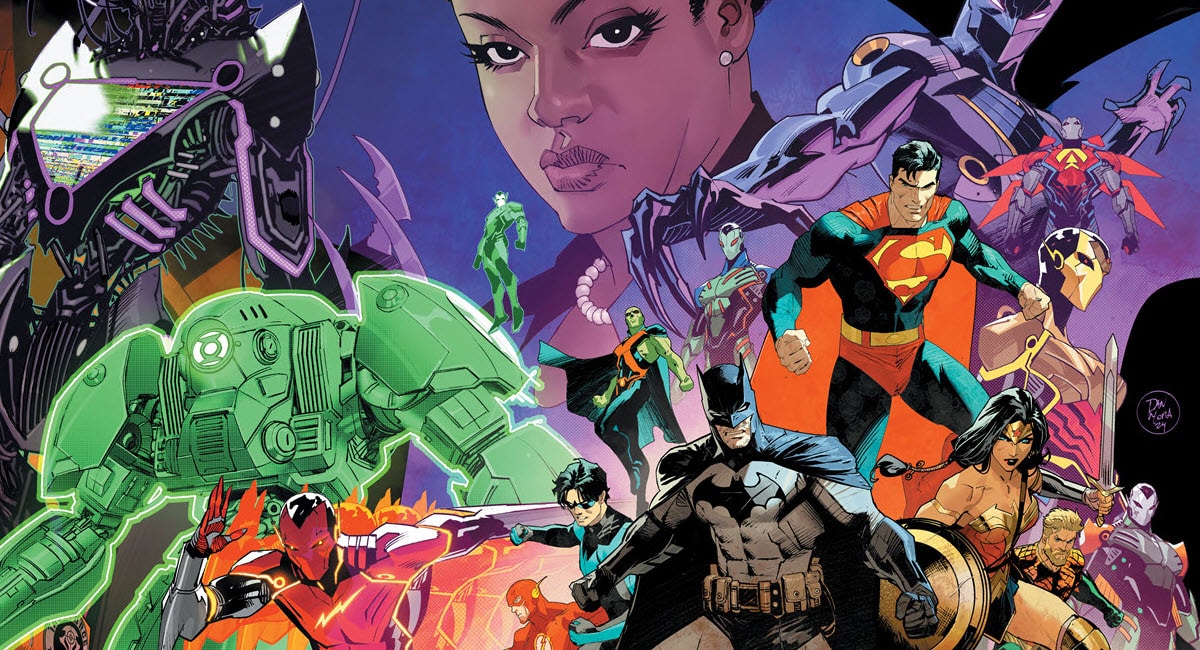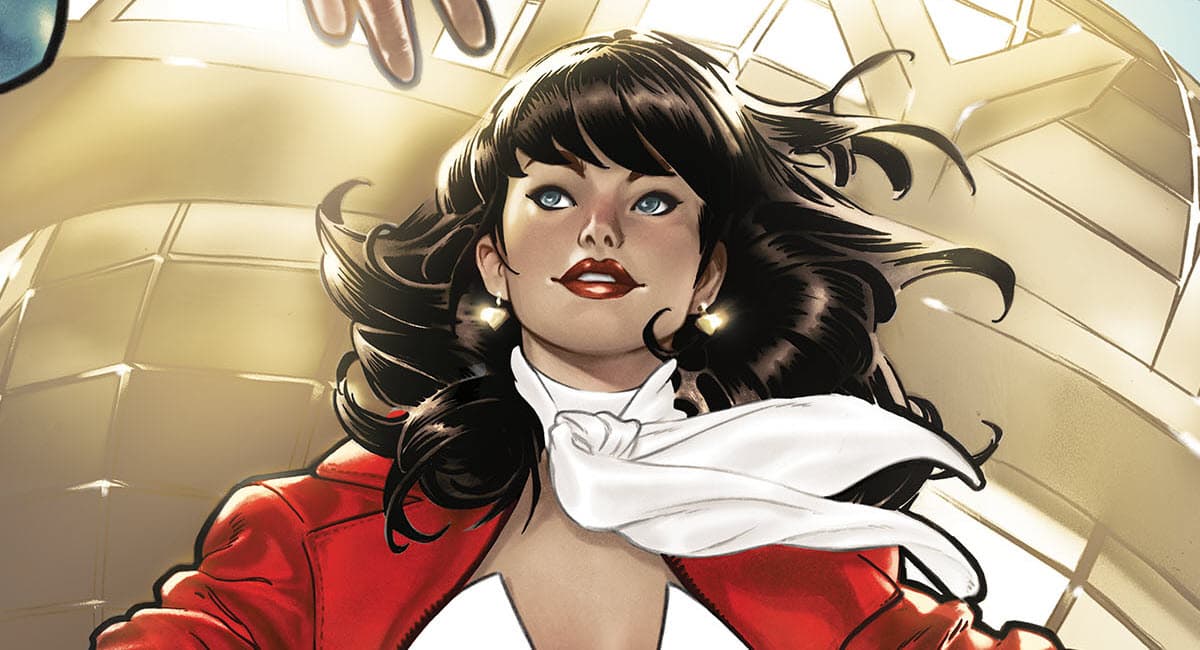Geoffrey Thorne has a long list of writing credits in comics (Green Lantern, Mosaic) and television (Power Book II: Ghost, Leverage). His new project, which is out this week, is writing the relaunch of Blood Syndicate for Milestone. The original series, co-created by Dwayne McDuffie, Denys Cowan, and Ivan Velez, Jr., has long been a favorite of many – including Thorne. He’s joined on the relaunched series by penciler ChrisCross, who drew much of the original run of the series and returns with a different style and look for the story and the characters.
The original series, written by Velez and drawn by ChrisCross and others, was unlike any other comic, and remains so this day. The Beat chatted with Thorne about taking on the task of bringing the beloved series back, and Thorne admitted that he has more pressure than usual with this book, but he’s also had more fun than he’s had on any other comic.
Alex Dueben: Were you were you a fan of Milestone back in the day?
Geoffrey Thorne: I have a nearly complete collection of all the original Milestones. I was there from Day 1. I loved them then. I love them now. I love them in between. I am a die hard Milestone for life.
Dueben: Were you approached specifically to write Blood Syndicate?
Thorne: I was approached to pitch Blood Syndicate. Basically since a Milestone went away, I’ve been a very loud, vocal, billboard-wearing person that said, if you ever come back and you do the Blood Syndicate and you don’t let me write Blood Syndicate, we’re gonna have a problem. That amounted to absolutely nothing that meant nothing to anyone, but, I’ve had some dealings with Reggie Hudlin. I wouldn’t say we’re friends, but we are business acquaintances in in the film and TV industry. We are familiar with one another. It’s no secret how I felt about this particular Milestone project. They asked me if I would be interested in pitching. Did I have a take that I thought might work for Blood Syndicate. We had a zoom meeting and Denys and Reggie heard my pitch and they were like, we very much like all of the things you are saying, please come do that.
I was genuinely, genuinely shocked – in a good way – that they went for it, because it’s a pretty wild pitch. And here we are.
Dueben: I’m sure there are plenty of things you don’t want to say to avoid spoiling things, but when you were pitching this, what did you want to do differently from what was done the first time?
Thorne: It wasn’t so much a matter of trying to do something different. It was, how do we bring the similar sensibilities thirty years forward and not seem like we’re doing something retro. Which is absolutely not what I ever want to do. The things that I pitched them had to do with what was true in the nineties that is not true now, and what was not true in the nineties that is true now. All of my solutions to those differences. The way our culture has evolved.
I didn’t have a big, how are we going to differentiate ourselves from the original or how are we going to continue the original? It was, how can we have that similar vibe that that I felt as a reader back then coming into this Blood Syndicate? For the new reader who doesn’t know any of this and comes in cold, can we evoke in them the same feeling I had when I read the first Blood Syndicate? That was basically the mandate from my side, and I think Denys and Reggie were very much on the same page with that.
Dueben: Blood Syndicate is a book, and this was true of the original, but it’s about these characters coming together. I don’t want to say that you wrote an origin story, but it is and it isn’t.
Thorne: Yeah, it’s an origin story in the sense that the Blood Syndicate as an organization does not exist at the beginning of this arc. It’s how do we get from here to there, but you’re right, in that most of the characters in the story already know each other – and have known each other for years. It’s more about superpowers when there’s no rhyme or reason to who gets them. The book is much more about who are the people who got these powers than it is about the powers. The powers are fun, but they’re not the point.
Dueben: It’s been interesting re-reading the original run because there was a lot of plot in those books that I had forgotten. The plot isn’t what people remember, what sticks is these characters.
Thorne: That’s right and we’re very much trying to keep that. Who are these people in these weird circumstances? Why are these people in this book? Why do we want to follow these people as opposed to some other people who may be in the same weird circumstance? Why are we focused on these guys?
It’s a character based story in all the good ways, but they have superpowers. Also, when you get superpowers, they don’t come with a manual. You just suddenly have this ability, like, okay, I can fly. Can I also breathe all the way up here? Or is it just the flying part? You have to figure out what your abilities are so. Not everyone is perfect in their control. Not everybody knows the upper limits. What the drawbacks are of their powers. How does your personal psychology influence how you use your powers?
Dueben: One of the things that distinguished the first series was that Ivan was able to write these characters who came from different backgrounds – and not polite middle class society – and trying to explore what that meant and how they lived.
Thorne: He brought in street culture. He brought in lower class, lower middle class, crime culture into into a space that normally doesn’t contain that. He did it effectively and amazingly. Blood Syndicate was by far my favorite of the Milestone books back then. That’s as much due to ChrisCross’s beautiful art as it is to Ivan’s beautiful writing. These characters were well crafted, and they were from a segment of society that almost never gets the spotlight. And when they do, they’re portrayed as villains. These people were complex. Some were tormented. People who had problems. He did not back off from that. We’re not doing exactly those beats, but we’re trying to keep that same flavor.
Dueben: You mentioned ChrisCross. Most of us remember him as the artist who defined the look of the book. How did he end up drawing this book and what has working with him been like?
Thorne: I’ve worked with Chris on a couple of titles now. He is just a gifted, prolific, engaged hyper-creative individual. It’s lucky in this case because it’s almost like all the other books were the buildup to being able to work with him on this. I am familiar enough with working with him now that we can just fall into a groove. He is exactly the right person to do this obviously for obvious reasons. Normally when I don’t know the artists very well – or at all – my scripts are hyper-specific about how things look. With the provision, this is my idea and obviously you’re a far better illustrator than me.
But with Chris, I really don’t even have to say that much. He’s returning to these characters and getting a chance that few creators are usually offered, which is a chance to completely update their visual look as he sees fit. Who else is the authority on how they should look? All I say is, here’s what the vibe is, these little differences in personality from the original to now, here’s how old this character is versus how old they were. Things like that. It’s just been easy. It’s like we’re in the middle of the run from our creative point of view.
He’s one of the originators of the Blood Syndicate, so there is an instant shorthand between me, who has always been a fan, and him, who basically designed the visual look of the original series. He came on in issue #3 and then ran almost to the end of that book. I’m genuinely – and pleasantly – shocked at what his updates are, because some of the stuff that he’s done is so dope. It’s also right on point for the character. I just let Chris run because, why wouldn’t you? It’s been great.
Dueben: I’m sure a lot of people know his work and a lot of people reading this are picturing his work in their heads, but as a writer, what is it that he does so well, and that you’re able to utilize in this story in particular?
Thorne: Chris is great with expressions, but also he has a very dynamic design sense, which has been evidence throughout his work. I think the most striking version of that design sense probably be his run on Captain Marvel from Marvel Comics. Like one of the characters, he did something so awesome that I went, I’m going to modify how this this character works. And change a couple of scenes to suit that. The scenes will be basically the same, but now they’ll have this extra wrinkle based on this design that I had not seen until that morning.
Dueben: He’s not just doing a throwback to what it used to be. Neither of you are doing a nostalgic take. You’re not trying to make it look 2022. You’re really trying to make it its own thing.
Thorne: A really good example of that would be the character of Fade. In the original, he had a very kind of clean goatee, clean haircut of the day – basically a fade. In the script I gave Chris some examples of what I was talking about. Fade is not a person who comes out of the house not looking good. He does not just throw on sweats and go outside. He’s fashion conscious, but not obsessed, and that means that his looks going to be different than that of his little sister, who does hit the streets in just her sweats and whatever. So much is said about a character visually, with those kinds of choices. With an artist like Chris, all you have to say is what I just said and what he comes back is something from the world outside his window. It feels real, because it is real.
It’s not just how they dress. It’s their physical gestures. There’s a lot of a lot of detail in there. A good comics illustrator is part cinematographer, part director, and very much part actor. Where many illustrators fall down is in facial expressions. Some very popular artists draw exactly the same woman over and over again, but in different clothes with different hair styles, but if you look at the body and the face, they’re identical. That’s fine for some stories, I guess, but I want each of these characters to be individually differentiated by style, by pose, by attitude, by gesture. So that even if they were all in silhouette, you would know who they were. Chris is perfect for that kind of artwork.
Dueben: On the original first issue back in the day, the cover had a banner: “America Eats Its Young.” That is a statement more true today than it was then, many would argue. I’m curious of how that idea and attitude informs the book.
Thorne: I think there’s a lot of soapbox mentality lately across the board in entertainment. I am not a soapbox writer. What I try to do is portray – as close to reality – the way the characters interact and some of the issues they face in their lives so that once you get to the end of a given arc, you understand the point I’m trying to get at. These people are at the bottom of society, and they’re given a weird upgrade that nobody quite knows what to do with. The question the book asks is, if you were given the ability to punish your enemies and to elevate your friends, what would you do with that ability? I think all comic books are commentary on modern America. Whether the creators wish it to be or not. In this case, our choice of characters and our choice of subject matter defines what the comment must be.
How can you be moral in this in this context? I feel everyone wants to be good, but their definition of what that is is what varies wildly. That is made more extreme because these people can sort of enforce with their idea of good. And do! I don’t do an overt call out. You’re not going to see any straight up, in your face, here’s what you should get out of this. A couple of characters talk a lot of crap, but it’s in character. It’s not the author filtering through that character. Now, no one is safe from death or serious injury. The body count will not be low in this book. But end of the day, it’s people trying to do right. It’s just, are they equipped? Not everyone is equipped. And what’s their learning curve going to cost the rest of us?
Dueben: The first season is six issues. You’re up for doing more?
Thorne: I was worried at the beginning, just because of my “real career” that I would be unable to continue past this arc. If I got the wrong – or the right, depending on your point of view – job in TV, that the time just wouldn’t be possible. But I told Reggie and Denys point blank, I will make the time if you guys want me to come back for a second arc. I will absolutely carve out the necessary time for as long as this goes on. I’ve never had more fun on a project.
I will say that I am nervous as hell. Generally, you want to put your fan self away. If you’re a fan of the IP, you have to stop being a fan and just be a writer. In this case, I have to be able to kill some of these people. I have to be able to put them through it. I have to be able to treat them poorly. Even the characters I love the most! That’s never really come up before. I am having fun. It is the most nerve-wracking time I’ve ever had on a comic book project. If Denys and Reggie want me to stay, I will stay for the duration. I’m not putting this down unless I’m forced to, basically.
Dueben: For the new Milestone, is there a lot of back and forth? Do you know what’s going on and the other books and what people are doing?
Thorne: I came in as the last of the four books that they were launching, so I had the luxury of looking at all the other books to go okay, here’s where we are. Going forward, I presume that there will be some coordination. The events that happened by the end of this arc will definitely have ripple effects in the other books. So that will be up to Reggie and Denys, who are sort of the co-editors-in-chief of the line. What will that ripple effect be? I’m sure I’ll have some input into it, but ultimately it will be their decision about how big and which characters will be involved in that ripple effect.
Dueben: On the DC website they wrote about Blood Syndicate that in the thirty years since it came out, “nothing like it has been seen since.” As if you weren’t worried enough.
Thorne: I’m terrified – but in a good way. I think you should always be nervous about any creative endeavor. But the thing with Green Lantern is that there’s always going to be a Green Lantern book. No matter how badly I break the toys, the worst I could possibly do with Green Lantern is they reboot it.
But Blood Syndicate? This is the first time in thirty years anyone’s tried it. If I don’t do it right, is it going to get another shot? I don’t know. So there’s a little more pressure. I’m a little more nervous. I take my work seriously and I take the Milestone concepts very, very seriously. I knew many of the people involved with making these original run. I came to know Dwayne McDuffie personally. I am not here to mess up that legacy.
The first issue of Blood Syndicate: Season One is out in stores and digitally today.


